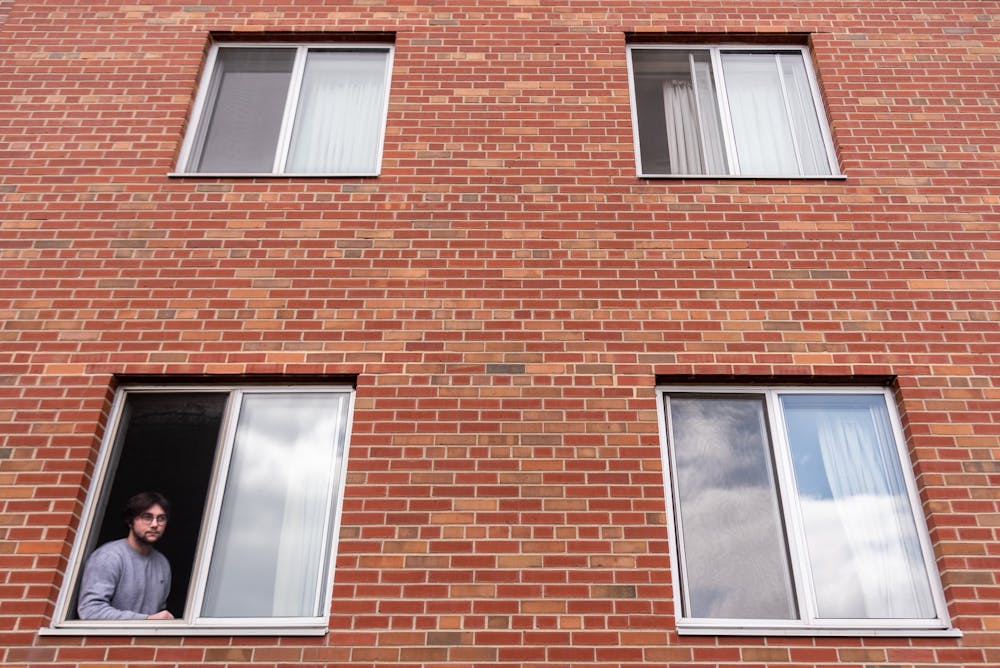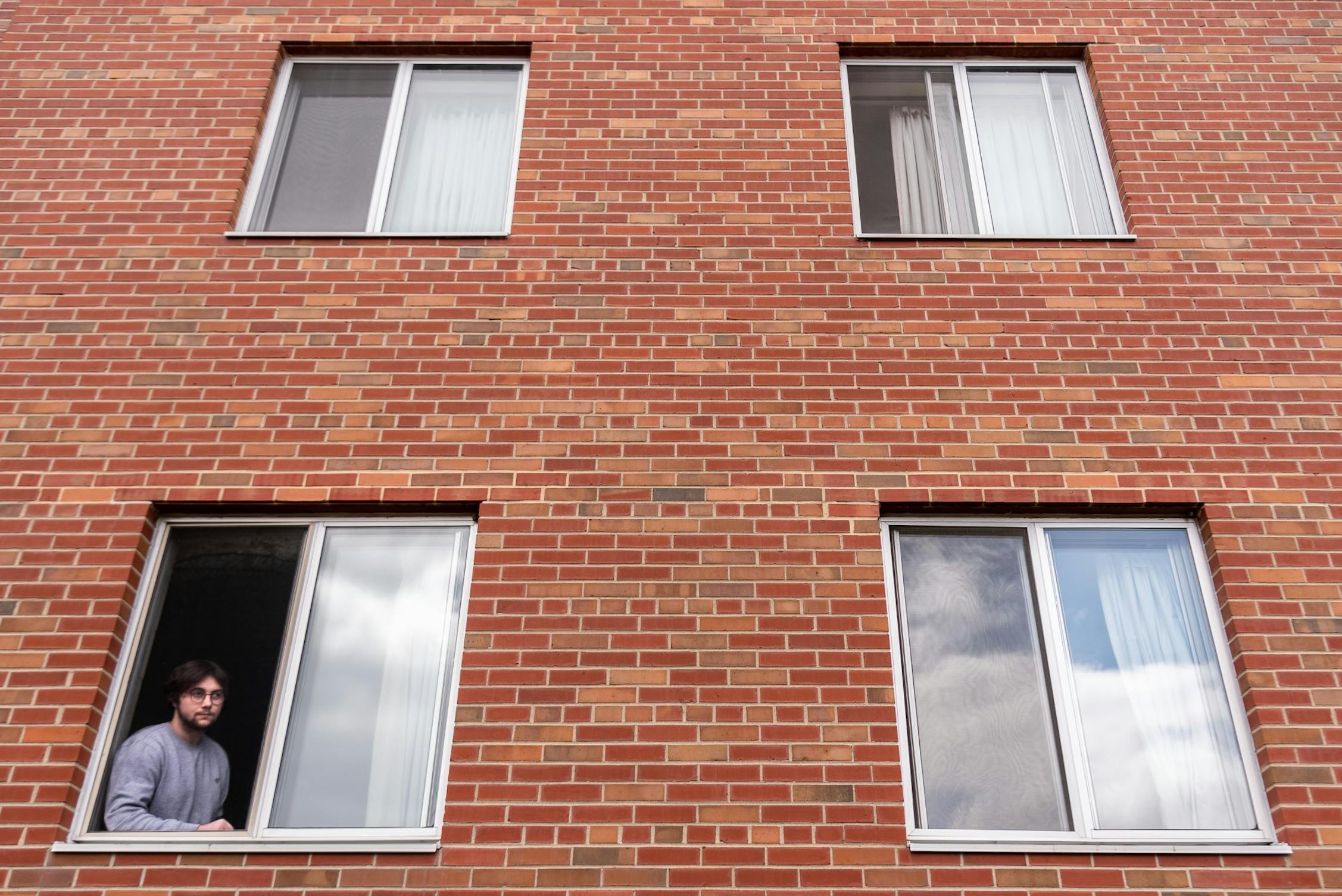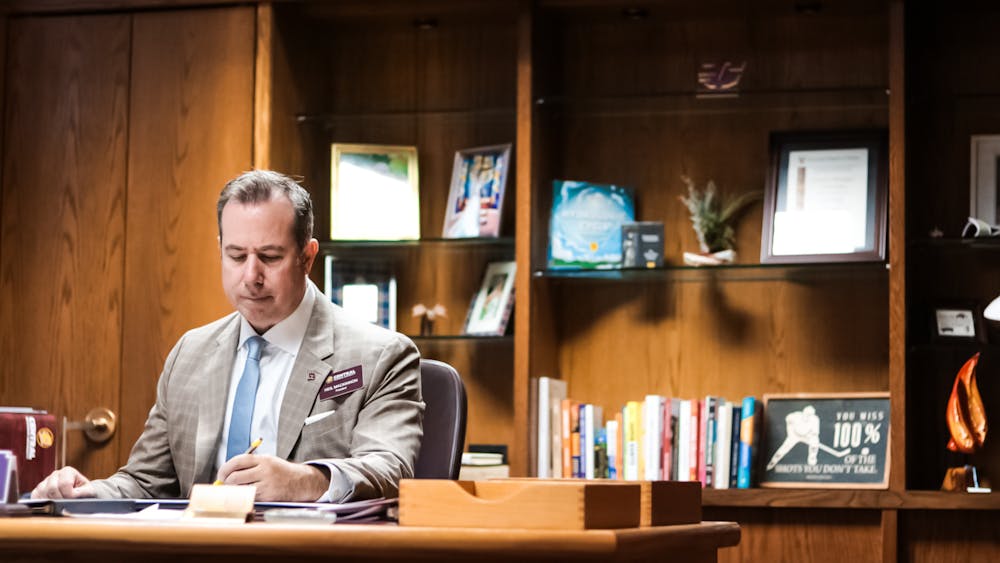COLUMN: From the son of a nurse, thank you healthcare professionals

I'm writing this column from my residence hall as one of the students who did not return home when CMU suspended in-person classes starting March 16.
I stayed in Mount Pleasant because my dad told me it may be safer for me to be on campus than in my home.
He works at one of the largest medical facilities in Michigan and, over the last few weeks, watched the number of confirmed COVID-19 cases grow exponentially.
At 41 years old, my father went back to school to become a registered nurse. The eight years that followed were extremely difficult. He spent hours in our basement cramming terminology and even longer gaining clinical experience. Through all of it, he worked hard, forging a better future for my family.
Three weeks ago, he was redeployed from the cardiac unit to an intensive care unit where every patient has the coronavirus. He suspects there are over 200 positive cases at the hospital.
After his 12-hour shifts, he drives home, strips off his scrubs in our garage and takes an intense shower. My mom puts on gloves and a mask before carrying the scrubs to the washing machine.
"In a pandemic like this, it's better to do more than to do less," he told me. "As a nurse, you always have a paranoid person in your head telling you it's better to be as safe as possible."
My dad isn't the only health care provider in my family. On my mom's side, it's pretty much a family tradition.
My cousin, Sharon, is a licensed clinical psychologist based in Chicago who works with children and adults. Illinois has more than 11,000 known cases and more than 200 deaths according to the Chicago Tribune.
Ever since Illinois Gov. J.B. Pritzker implemented new health and safety guidelines, her in-person therapy sessions are now on Zoom. Sharon said she heard stories from her colleagues about people hacking into Zoom sessions and disrupting important behavioral therapy exercises.
"I'm lucky that most of what I do can be done from home, but the in-person interaction goes a long way in this field," she said.
Another cousin is a registered nurse in the Metro-Detroit area, the largest hotspot for positive COVID-19 cases in Michigan. She was only nine months into her first full-time position as a nurse when the coronavirus began to purge the state.
"I was so lucky to have at least some time getting comfortable with being in an ICU unit before all (of) this hit," she told me. "Some of the newer nurses will need to go through orientation again because the only patients they'll have experience with are COVID patients."
Like many other hospital workers, she is limited to one mask per shift. She said some of her coworkers began making their own surgical caps to keep the virus from getting in their hair.
She demanded her parents (my aunt and uncle) not leave their home under any circumstances. Sometimes when she's not working, she'll shop for them and leave the groceries on their doorstep.
The harsh truth is that none of these issues are unique to my family.
Medical staff everywhere are being forced to work in extremely unsafe conditions. It seems like every day we see headlines about shortages in sterilization and protection equipment.
Even worse are the stories that engage in military rhetoric. They use phrases such as "the war against COVID-19," "on the front lines," or "heroes."
My family members are not soldiers. They did not become healthcare professionals to potentially die in the line of duty.
I'm lucky enough to do my job from the comfort of my dorm room by writing stories about how the coronavirus is affecting people in my community. My distant observations have shown me that the most important people in the world right now are those trained to treat this illness and isolate those who have it.
It's our responsibility to assist Michigan in its COVID-19 response. Volunteer your extra time, spare resources and warm hearts to those who really need it. Refer to the list of donation programs on michigan.gov and nonprofits in Isabella County that are providing aid through the pandemic.
I commend all the health professionals that risk their lives to protect those of us that need to stay home.







